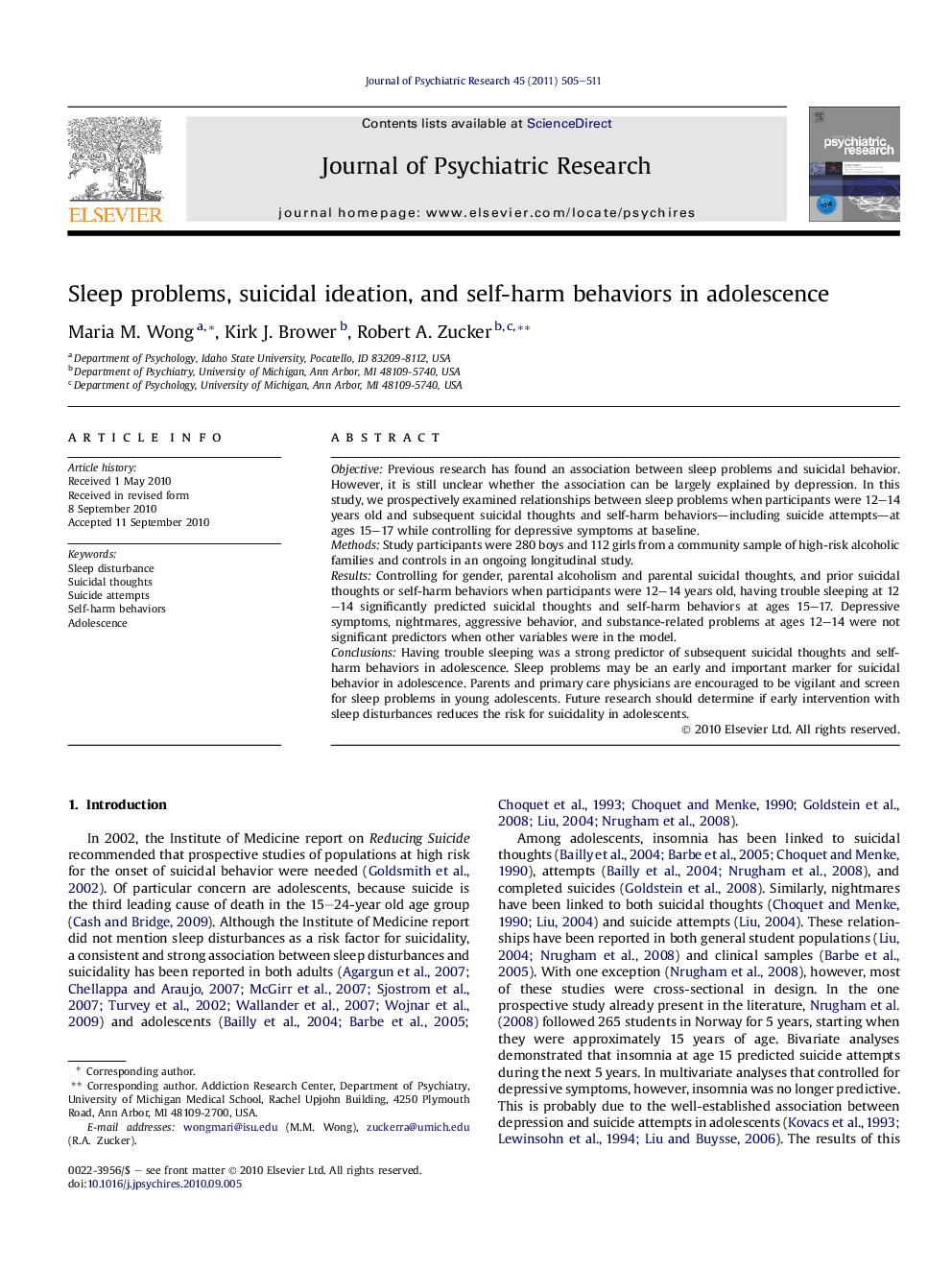| Article ID | Journal | Published Year | Pages | File Type |
|---|---|---|---|---|
| 327447 | Journal of Psychiatric Research | 2011 | 7 Pages |
ObjectivePrevious research has found an association between sleep problems and suicidal behavior. However, it is still unclear whether the association can be largely explained by depression. In this study, we prospectively examined relationships between sleep problems when participants were 12–14 years old and subsequent suicidal thoughts and self-harm behaviors—including suicide attempts—at ages 15–17 while controlling for depressive symptoms at baseline.MethodsStudy participants were 280 boys and 112 girls from a community sample of high-risk alcoholic families and controls in an ongoing longitudinal study.ResultsControlling for gender, parental alcoholism and parental suicidal thoughts, and prior suicidal thoughts or self-harm behaviors when participants were 12–14 years old, having trouble sleeping at 12–14 significantly predicted suicidal thoughts and self-harm behaviors at ages 15–17. Depressive symptoms, nightmares, aggressive behavior, and substance-related problems at ages 12–14 were not significant predictors when other variables were in the model.ConclusionsHaving trouble sleeping was a strong predictor of subsequent suicidal thoughts and self-harm behaviors in adolescence. Sleep problems may be an early and important marker for suicidal behavior in adolescence. Parents and primary care physicians are encouraged to be vigilant and screen for sleep problems in young adolescents. Future research should determine if early intervention with sleep disturbances reduces the risk for suicidality in adolescents.
